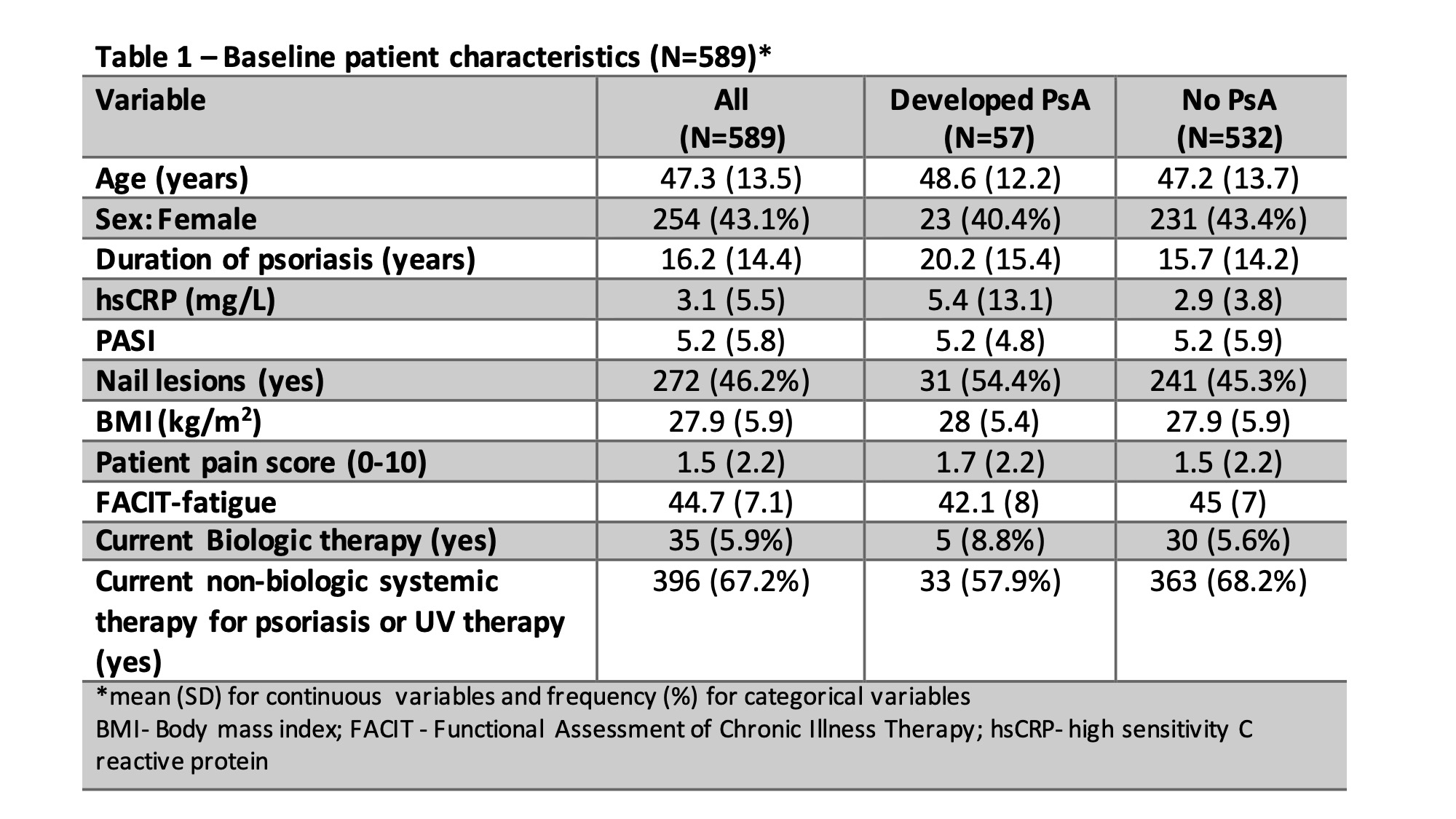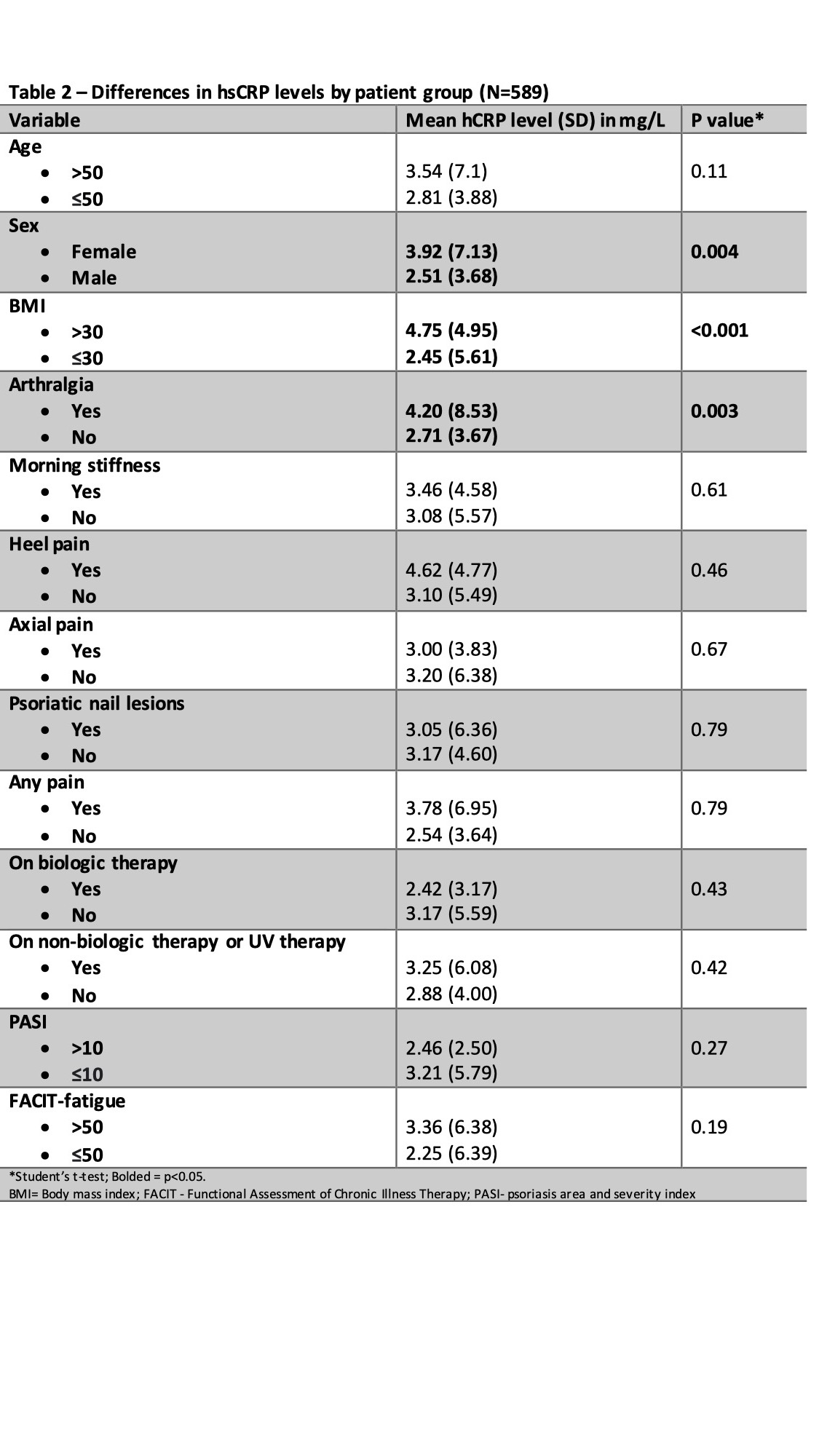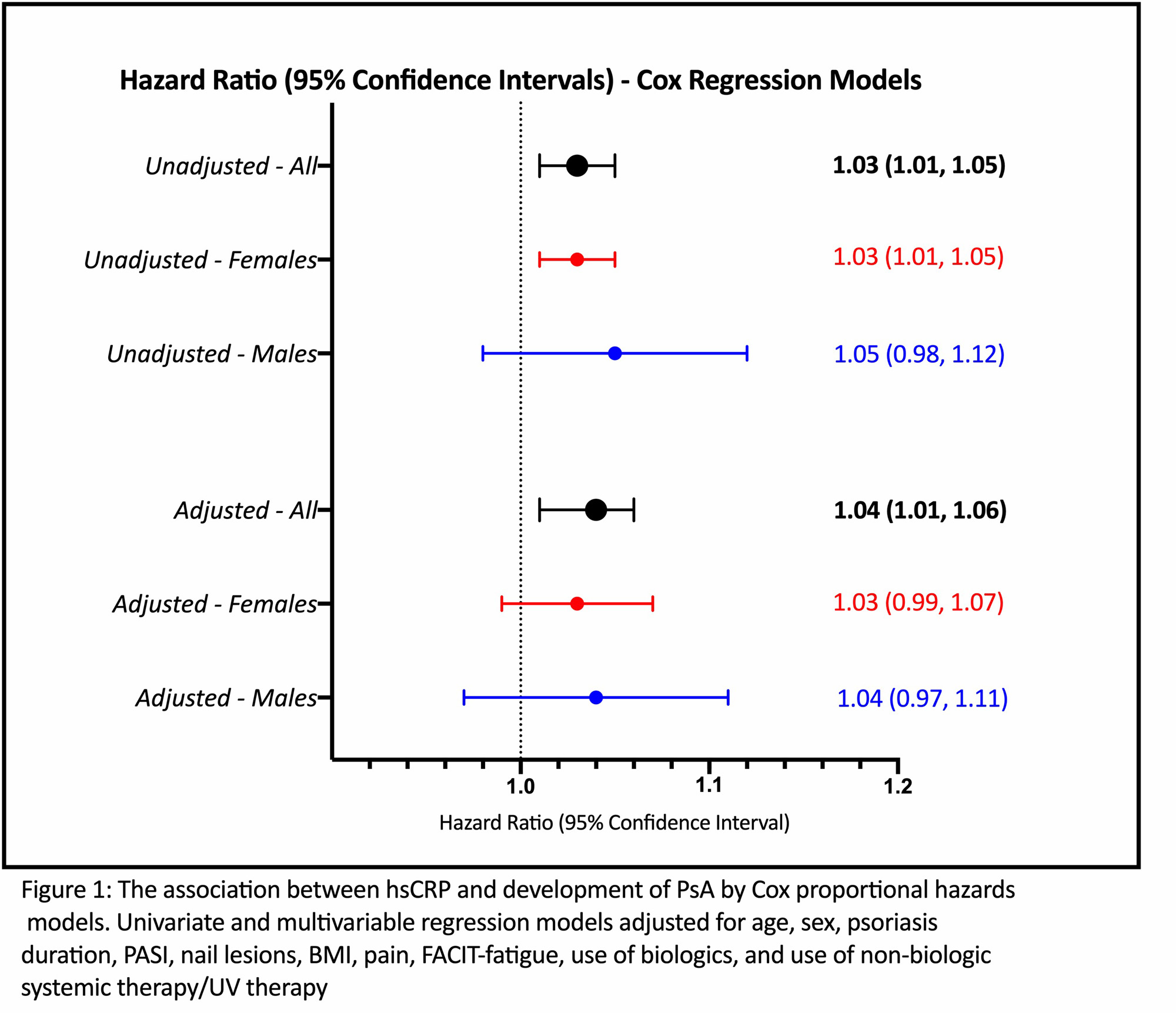Session Information
Session Type: Poster Session A
Session Time: 9:00AM-11:00AM
Background/Purpose: Simple and accessible biomarkers that predict the development of psoriatic arthritis (PsA) among psoriasis patients are critically needed to improve early detection of high-risk individuals. High-sensitivity C-Reactive Protein (hs-CRP) is a biomarker of systemic inflammation. We aimed to assess whether higher levels of hs-CRP are associated with risk of future development of PsA among patients with psoriasis.
Methods: We analyzed data from a prospective cohort of patients with psoriasis without PsA at enrollment. Participants were assessed annually by a rheumatologist for signs and symptoms of PsA. Information on patient demographics, psoriasis features, medications and musculoskeletal symptoms was collected using standard protocols. hs-CRP levels were measured in serum samples collected at baseline using standard commercial assays in a hospital laboratory. The differences in average hs-CRP levels were assessed across pre-defined patient groups using t-test. The association between hs-CRP levels and risk of future development of PsA was assessed using multivariable Cox proportional hazards model adjusted for known risk factors for PsA.
Results: A total of 589 patients with psoriasis followed from 2006 to 2019 were analyzed. Mean duration of follow up was 7.5 years. 57 patients developed PsA during the follow up period (incidence of 1.2 events per year). Mean level of hsCRP was 3.1±5.5 mg/L. Patient characteristics are shown in Table 1. Significantly higher levels of hs-CRP at baseline were found in patients with arthralgia (4.2±8.53 vs. 2.71±3.67 mg/L), obesity (4.75±4.95 vs. 2.45±5.61 mg/L) and in females (3.92±7.13 vs. 2.51±3.68 mg/L); see Table 2. Higher hs-CRP levels were associated with future development of PsA in univariate analysis (hazard ratio (HR) 1.03, 95% Confidence Interval (CI) 1.01, 1.05, p=0.002). This association remained significant in the multivariable regression analysis (HR 1.04, 95% CI 1.01, 1.06, p=0.008). Similar effect size was seen in males and females (Figure 1). No significant interaction was found between hs-CRP and sex or BMI.
Conclusion: Higher levels of systemic inflammation, as measured by hs-CRP, identify patients with psoriasis at high risk of future development of PsA.
To cite this abstract in AMA style:
Eder L, Chandran V, Rosen C, Cook R, Gladman D. Higher Levels of High-sensitivity CRP Are Associated with Future Risk of Developing Psoriatic Arthritis Among Patients with Psoriasis: A Prospective Cohort Study [abstract]. Arthritis Rheumatol. 2023; 75 (suppl 9). https://acrabstracts.org/abstract/higher-levels-of-high-sensitivity-crp-are-associated-with-future-risk-of-developing-psoriatic-arthritis-among-patients-with-psoriasis-a-prospective-cohort-study/. Accessed .« Back to ACR Convergence 2023
ACR Meeting Abstracts - https://acrabstracts.org/abstract/higher-levels-of-high-sensitivity-crp-are-associated-with-future-risk-of-developing-psoriatic-arthritis-among-patients-with-psoriasis-a-prospective-cohort-study/



